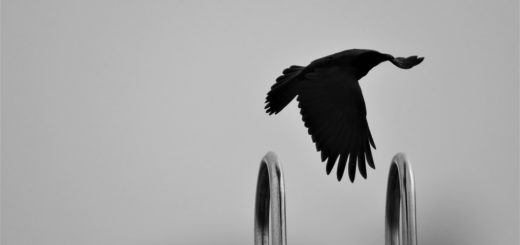The Rise and Fall of Jordan Peterson
Jordan Peterson, Canadian professor of clinical psychology cum politically incorrect lightening rod cum global celebrity self-help guru, has, unfortunately, fallen prey to the demons of fame, self-importance, and the sense of irrational urgency — “it has to be me, it has to be now” — that attends the sudden explosion of unexpected praise and mass admiration in the life of a thoughtful but emotionally immature man.
I will not get into the details of his condition here, partly because I do not pretend to have any inside knowledge, but mainly because I do not wish to join the vultures (among both his “friends” and enemies) currently picking his bones for personal or political advantage. Suffice it to say that Dr. Peterson did not follow his own best advice, while, sadly, adhering all too well to his worst theoretical weaknesses.
To be more precise, while he advises his followers — I paused carefully over that noun choice, but I think “followers” will serve well enough for the moment — to reject the mentality of activism, which puts the cart of “fixing the world” before the horse of gaining control of one’s own life, he has overworked and over-scheduled himself into poor health and drug-dependence.
While he advises his followers (mostly young men) to embrace the responsibilities and commitments of family and child-rearing, he has sought to “balance” an insane schedule of completely superfluous public appearances and hostile debate opportunities with the real-life responsibility of caring for a wife battling life-threatening illness, and has enthusiastically thrust his very young and unaccomplished (but selfie-obsessed) daughter into an unearned and personality-warping spotlight, against what would surely be the better judgment of any reasonable parent.
While he advises his followers to stop making excuses, avoiding reality, and lapsing into self-indulgence, he has spent years excusing his own (near-fatal) dependence on psychological medication, hiding from the truth of his emotional dependence on drugs by claiming his is a purely “physical” addiction, and demanding that everyone accept that somehow his exalted, world-historical case is unique, and therefore that the normal rules of self-reliance and “cleaning your room” do not apply to him.
On the other hand, as a trained and highly accomplished social scientist, Peterson shares many of the intrinsic — I would say fatal — flaws of that academic field, in particular a willingness to confuse success as popularly defined (wealth, fame, awards) with a genuine standard of well-being, and hence to rely almost entirely on statistics and mass opinion to determine both the proper goals of the well-lived human life, and the relative greatness of given individuals. This is the standard relativism (i.e., pragmatic progressive collectivism) inherent in all mainstream social science theorizing: What is good is what works in today’s world.
Buying into this trivialized or democratized notion of elitism — the new aristocracy is elected by mass approval or anointed by standardized test — Peterson, as a classroom lecturer, repeatedly assures himself and his students that he and they are in the top percentile of the human population simply by virtue of their teaching or studying at a prestigious university; he advises his followers on methods of succeeding in life, with success exemplified almost exclusively by career achievement and income; and he blindly acquiesces to the jargon of IQ, which judges something it calls “intelligence” almost entirely on a scale determined according to conventionally-approved standards of material or social success.
As a result of these and similar social science presuppositions, Peterson was bound to be strongly susceptible, in his own life, to the trap of sudden fame and praise. That is to say, on his own academic standards, his large number of YouTube subscribers was proof of his political importance, and the many demands being made on his time and energy were evidence of his social indispensability. The world needed him, right now. If he took a day off, if he let someone else on the stage ahead of him, if he turned down a single debate challenge or interview request, this would suggest he was less great than he wished to be, less essential than he felt, less of an Atlas than his followers wished to believe he was.
And so he shirked his real personal responsibilities in favor of the needs of his growing fame. He forsook his health for his book tour. He abandoned his serious research for the sake of publishing an easy self-help bestseller that would enlarge his fanbase. He allowed himself to depend on dangerous medications and fad diets to get through the emotional and physical rigors of his absurd globetrotting itinerary of self-promotion. He couldn’t stop for a moment, couldn’t take a break for his family, couldn’t stand the thought of losing an audience member, a book sale, or a subscriber. He was too important, what he was doing too necessary to the world, to let one public opportunity slip through his hands. He was cracking up in public, becoming irrationally angry and megalomaniacal, weeping during interviews, and all the while reveling with twisted pride as some of his fellow pop-intellectuals warned him, even in public, that he was burning himself out.
Then, suddenly, he was in a Russian hospital undergoing some sort of radical detoxification treatment, as a result of long-term addiction to anti-anxiety medication.
I see how this happened. Some of his premises were wrong. He lacked the maturity and emotional stability to step back for a moment and measure his growing fame against the demands of clear thinking and rational living.
In short, he lacked a proper standard for judging his own (or anyone else’s) life, because his academic training and personal experience had enmeshed him in all the empty certainties and dogmatic presuppositions of social science. He was preaching independence and self-reliance to others, while at the same time relying heavily on public approval and social conventions to establish his own self-worth.
Worst of all, from my point of view, he sacrificed his honest mind to the needs and expectations of a growing following of anonymous admirers.
I remember the way I often felt, during my first year or two of writing about politics at Canada Free Press and American Thinker. Suddenly, to my amazement, having long cultivated a very private and uncompromising intellectual life, my writing was getting top-billing at popular websites. Thousands of people were reading what I wrote, getting excited about what I had to say, cheering me on as I attacked the political establishment, defended principle over pragmatism, explained property rights and individualism in logic and language they had rarely encountered in any current forum.
I remember those 2am writing sessions, sitting alone in my university office, full of energy, thousands of words pouring out of my hands, then directly e-mailed, almost before the ink was dry, to website editors for prompt posting, and then walking home at 4am for a short nap before teaching a morning class.
I needed to get my response to the latest events up first. I needed to have my own public take on everything. I couldn’t stand the thought that a major story would pass by without my opinion about it being front and center in (my imaginary picture of) “the discussion.” I felt deeply gratified by every unknown reader who told me I was the best writer around. When a U.S. presidential candidate borrowed one of my lines in a debate, I felt significant. When a syndicated American radio program invited me to serve as its “Korea expert,” I felt….
Yes, I felt; those were all feelings. Rationally, I always knew none of that was very meaningful in the long run. Rationally, I never forgot that my usual self-test question — “What would Socrates do?” — suggested a more detached and ironic interpretation of all of my activities and successes than the one my emotional reactions and self-imposed physical weariness were promoting in my soul. In other words, I never completely “lost it.”
Then, most fortunately, a series of events saved me from my potential addiction to empty praise and the flattering approbation of numbers.
First of all, I was writing a book, The Case Against Public Education, which began as an attempt to bring together some of my short essays at American Thinker, but then, contrary to my early expectations, evolved into a more demanding, and infinitely more satisfying, philosophical project, requiring major commitments of private time and energy. For the book, I had to basically eschew most other writing projects for many months. This forcibly detached me, in the most painless way possible, from the world of current issues, and especially from the disarming temptations of feeling “involved,” i.e., publicly appreciated. I realized (or rather recalled) very naturally, during this period, that the world of immediate concerns would carry on much the same without me; and even more importantly, that I could carry on very well without that world.
During roughly that same period, I became more immersed in my teaching again, and particularly gained a renewed sense of responsibility for the real live humans I was encountering in my daily life — individuals who, when they expressed a need for my thoughts and help, really meant it, and also unqualifiedly deserved it. Simply put, I recalled my most persistent personal answer to the question, “What would Socrates do?”: He would focus on the needs and potential of the individual souls in front of him, rather than on the contingencies of popular appreciation and the quest for the biggest (i.e., most anonymous and collective) audience.
Third, Trump happened. For all my disdain for the man and his cult, the truth is that Trump’s ascendancy, right there in the midst of my own audience, at American Thinker, and among my own most dedicated readers, the former Tea Party constitutionalists, taught me a final, admittedly superfluous but never-to-be-forgotten lesson about the true meaning of working for an audience and seeking popular approval: They are never following you as much as you are following them. They love you only as long as they believe you are prepared to declare your undying allegiance to them. Not to truth, principle, honor, dignity, the cause that once drew them to you, or the demands of your own soul. To them, period.
Jordan Peterson, who is dealing with the spiritual challenges and dangers of popular success on a much larger scale than I did, has yet to learn these lessons, or apparently even to suspect he needs to learn anything at all. He therefore faces a very difficult future, and if he does not start maturing soon, an even harder reckoning than the one he has been dealt over the past year.
I sincerely wish him all the best, while honestly fearing for the worst.



